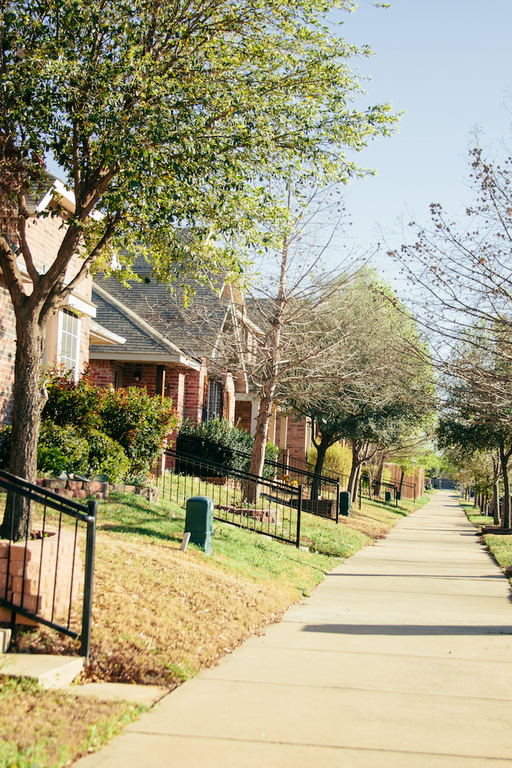Average Home Price in Colorado Declines by $5,665 from June Through August
Home prices continued to rise this summer in all but eight states, including Colorado, which has averaged some of the steepest price drops of any state since June, according to an analyst from QuoteWizard. The average price of a home in Colorado has declined by $5,665 or just shy of one percent to $580,275 from the end of June and the end of August, according to the study, which used home values from real estate multiple sources. This represented the third largest dollar decline after California, down by $12,205, and Utah, down by $9,917. On a percentage basis, Colorado’s price decline ranks as the fifth largest after Utah, California, Arizona, and Oregon. “Home prices in Colorado increased by 40 percent in less than two years, so I think what we are seeing now is a little bit of correction. Rising interest rates are tightening the market and I think we are switching from a seller’s market to a buyer’s market,” said Nick VinZant, a senior research analyst at the insurance research site said in an email. VinZant said he doesn’t see huge declines, and even if home prices fall five percent to 10 percent, they will remain way above where they were just two years ago. “Watching prices decline can be scary and frustrating for people who bought at the top of the market, but remember, we aren’t making any more land, home prices will eventually go back up again, and your home is a valuable asset,” he said. Home prices are down by $93,037 in San Jose, CA, which had the biggest drop among metro areas studied, and $42,144 in San Francisco. Austin, TX, and San Diego, CA, are nursing price drops in the $22,000 range, while Los Angeles’ losses are just over $17,000 on average. In metro Denver, home prices are down an average of $10,657, and in Colorado Springs they are lower by just under $5,000. The price declines captured by the study lag those measured in the S&P CoreLogic Case-Shiller U.S. National Home Price Index, which released July numbers last week. It shows that the month-over-month home price decline that started in June at 0.1 percent accelerated sharply in July to 1.4 percent. On the year, home prices in Denver rose 15.6 percent, which is on par with the 15.8 percent annual gain measured nationally. That 1.4 percent decline in July is the ninth largest monthly drop captured in the Denver home price index going back to January 1987. From January 2020 to June 2022, monthly home price gains in metro Denver have averaged 1.4 percent. The July decline wiped out one month’s worth of pandemic-era appreciation. “Rapid home price deceleration, which is spreading beyond the West Coast markets, was anticipated given the Fed’s actions and will bring home price growth closer in line with income growth. Returning to the long-term average of 4-5 percent annual growth is closer than initially anticipated, potentially by early 2023,” said Selma Hepp, deputy chief economist with CoreLogic in an email.
Home prices continued to rise this summer in all but eight states, including Colorado, which has averaged some of the steepest price drops of any state since June, according to an analyst from QuoteWizard. The average price of a home in Colorado has declined by $5,665 or just shy of one percent to $580,275 from the end of June and the end of August, according to the study, which used home values from real estate multiple sources. This represented the third largest dollar decline after California, down by $12,205, and Utah, down by $9,917. On a percentage basis, Colorado’s price decline ranks as the fifth largest after Utah, California, Arizona, and Oregon. “Home prices in Colorado increased by 40 percent in less than two years, so I think what we are seeing now is a little bit of correction. Rising interest rates are tightening the market and I think we are switching from a seller’s market to a buyer’s market,” said Nick VinZant, a senior research analyst at the insurance research site said in an email. VinZant said he doesn’t see huge declines, and even if home prices fall five percent to 10 percent, they will remain way above where they were just two years ago. “Watching prices decline can be scary and frustrating for people who bought at the top of the market, but remember, we aren’t making any more land, home prices will eventually go back up again, and your home is a valuable asset,” he said. Home prices are down by $93,037 in San Jose, CA, which had the biggest drop among metro areas studied, and $42,144 in San Francisco. Austin, TX, and San Diego, CA, are nursing price drops in the $22,000 range, while Los Angeles’ losses are just over $17,000 on average. In metro Denver, home prices are down an average of $10,657, and in Colorado Springs they are lower by just under $5,000. The price declines captured by the study lag those measured in the S&P CoreLogic Case-Shiller U.S. National Home Price Index, which released July numbers last week. It shows that the month-over-month home price decline that started in June at 0.1 percent accelerated sharply in July to 1.4 percent. On the year, home prices in Denver rose 15.6 percent, which is on par with the 15.8 percent annual gain measured nationally. That 1.4 percent decline in July is the ninth largest monthly drop captured in the Denver home price index going back to January 1987. From January 2020 to June 2022, monthly home price gains in metro Denver have averaged 1.4 percent. The July decline wiped out one month’s worth of pandemic-era appreciation. “Rapid home price deceleration, which is spreading beyond the West Coast markets, was anticipated given the Fed’s actions and will bring home price growth closer in line with income growth. Returning to the long-term average of 4-5 percent annual growth is closer than initially anticipated, potentially by early 2023,” said Selma Hepp, deputy chief economist with CoreLogic in an email.


 Menu
Menu




